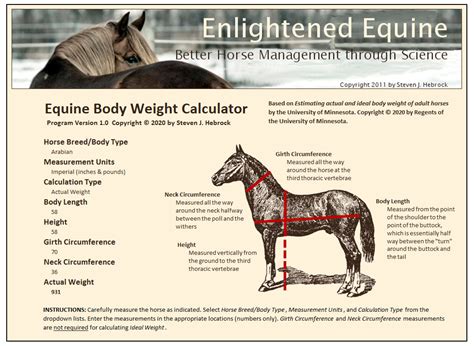The Horse Grain Calculator You Need: Ensuring Optimal Nutrition for Your Equine Partner
Owning a horse is a rewarding experience, but it comes with responsibilities, one of the most crucial being proper nutrition. Getting the right amount of grain is vital for your horse's health, energy levels, and overall well-being. Too much grain can lead to obesity and health problems, while too little can result in nutrient deficiencies and poor performance. This is where a horse grain calculator becomes invaluable. This article will explore why you need one and how to effectively use it.
Why is a Horse Grain Calculator Essential?
A horse's dietary needs are complex and vary significantly based on several factors. A simple "rule of thumb" approach is insufficient for ensuring optimal health. A dedicated calculator helps you personalize your horse's grain ration, taking into account:
-
Body weight: This is the most crucial factor, as grain requirements are directly proportional to the horse's size. Accurate weight measurement is essential, ideally using scales designed for livestock.
-
Activity level: A highly active horse, such as one used for competitive riding or strenuous work, requires more energy and therefore more grain than a horse kept primarily for leisure riding or pasture grazing.
-
Age: Foals, growing youngsters, and older horses have different nutritional needs. Young horses require more calories for growth, while older horses may need adjustments for age-related conditions.
-
Body condition score (BCS): Assessing your horse's body condition helps determine if they are underweight, overweight, or ideal. This aids in adjusting grain intake accordingly. Learn to use the Henneke scoring system for accurate assessment.
-
Type of grain: Different grains offer varying nutrient profiles. A calculator allows you to select the specific type of grain you use to ensure accurate calculations.
-
Hay quality and quantity: Hay forms the foundation of a horse's diet. The calculator helps determine the appropriate grain supplement, factoring in the nutritional content of your horse's hay.
How to Use a Horse Grain Calculator
Most online horse grain calculators follow a similar structure. You'll typically input the factors mentioned above: weight, activity level, age, BCS, type of grain, and hay quality. The calculator then uses algorithms to estimate the appropriate daily grain allowance.
Remember, the result is an estimate. It's crucial to regularly monitor your horse's body condition and adjust the grain ration as needed. Visual inspection and regular weigh-ins are key to ensuring your horse maintains a healthy weight.
What if I don't have access to a horse grain calculator?
While using a dedicated calculator is recommended, you can still make a reasonable estimate by consulting with your veterinarian or a qualified equine nutritionist. They can provide tailored advice based on your horse's specific needs and circumstances.
What are the potential consequences of incorrect grain feeding?
Overfeeding grain can lead to:
- Laminitis: A painful and potentially debilitating condition affecting the hooves.
- Obesity: Increased risk of other health problems, including metabolic disorders.
- Colic: Severe abdominal pain.
Underfeeding grain can lead to:
- Weight loss: Compromised health and performance.
- Nutrient deficiencies: Weakened immune system and increased susceptibility to illness.
- Poor coat condition: Dull, dry hair.
How often should I adjust my horse's grain ration?
It's advisable to re-evaluate your horse's grain needs at least every few months, or more frequently if you notice significant changes in their weight, activity level, or body condition. Seasonal changes can also influence your horse's nutritional needs.
Are there different types of horse grain calculators?
Yes, various calculators are available online, some offered by feed companies and others developed by independent nutritionists. Ensure you're using a reputable source and understand the underlying formulas used in the calculations.
What other factors should I consider besides grain?
Remember that grain is only part of the equation. Ensure your horse has access to clean, fresh water at all times and high-quality hay, which should form the bulk of their diet. Regular veterinary checkups are also crucial for maintaining your horse's overall health.
By using a horse grain calculator and paying close attention to your horse's individual needs, you can provide the optimal nutrition they need to thrive. Remember that this information is for guidance only, and consulting with a veterinarian or equine nutritionist is always recommended for personalized advice.

